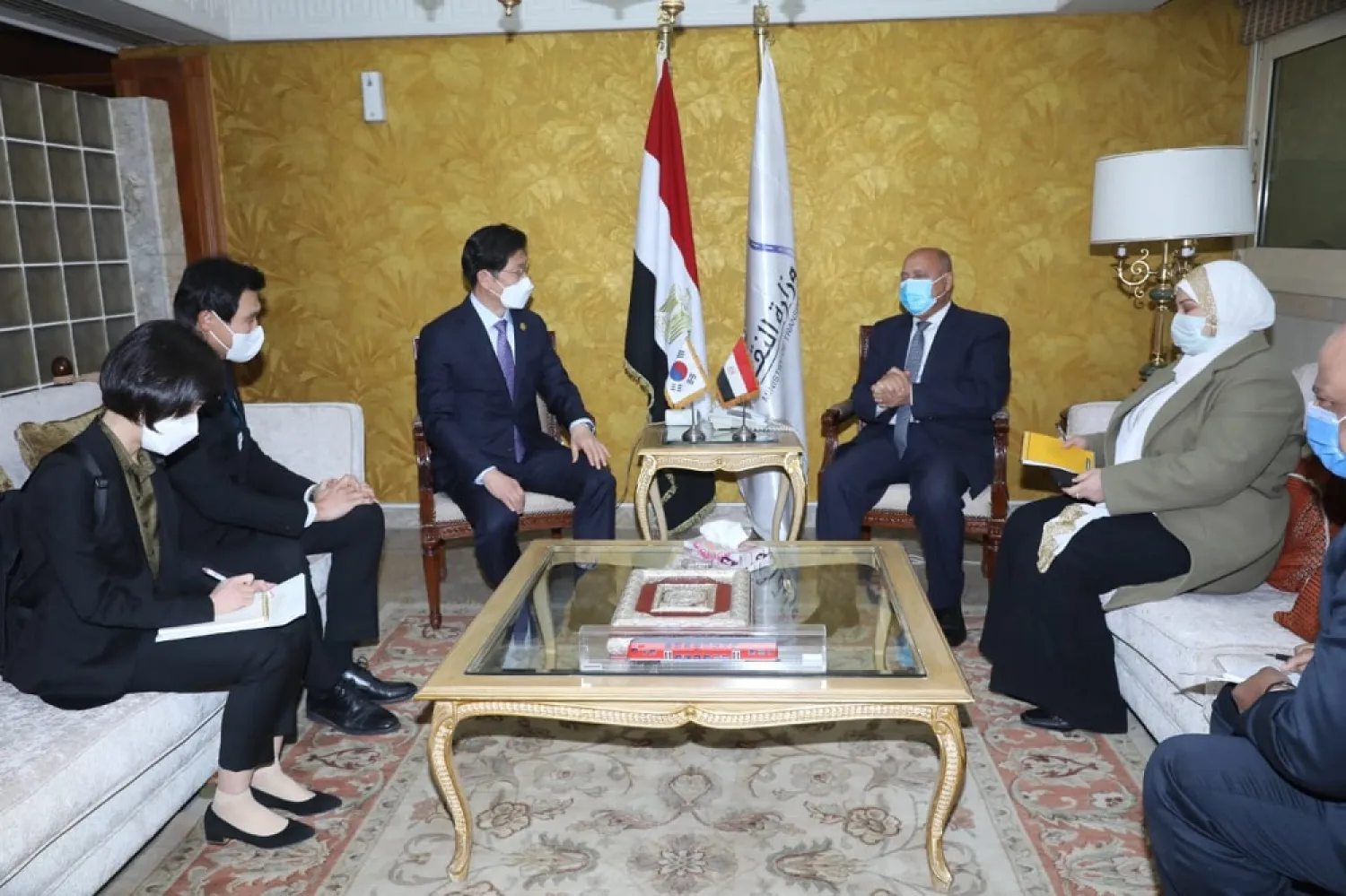Egypt discussed with South Korea on Friday ways of supporting and developing joint cooperation in the fields of railways, metro and sea transport.
They also reviewed other projects in progress between them.
Egyptian Minister of Transportation Eng. Kamel al-Wazir met in Cairo with his South Korean counterpart Noh Hyeong-ouk, who is currently on an official visit to the North African nation.
During the meeting, the ministers tackled the projects underway between Egypt and South Korean in the different fields of transport, especially as regards to upgrading the signaling system on the 118 km Naga Hammadi-Luxor line and the 224 km Luxor-High Dam line.
The two ministers also agreed to activate the agreement that was previously signed by Egypt and South Korea to locally manufacture metro train cars in Egypt, the Transportation Ministry said in a statement.
Wazir stressed that the Egyptian government places great importance on improving maritime transport, adding that a comprehensive plan has been implemented to transform Egypt into international hub for trade and logistics.
For his part, the Korean Minister underlined Seoul's keenness on increasing cooperation with Cairo in a number of sectors.
The ministers signed a memorandum of understanding to enhance cooperation in the field of railways and the public and the private sectors.
The agreement also aims at developing cooperation in signaling, communications, control systems and the renovation of railways.
The Egyptian government stressed that developing the railway network focuses on the carriages, railway, updating the traffic signal system, improving safety, installing modern equipment and training workers.
Egypt has in recent years witnessed several railway accidents.










